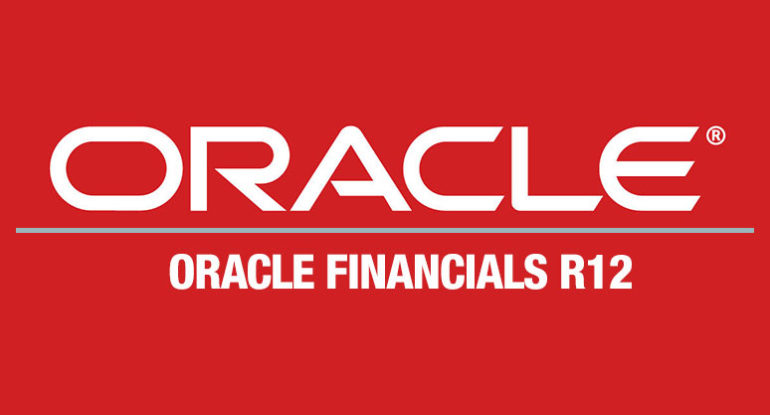- Home
- Database
- Networking
- Programming
- Online Courses
- Mobile Application
- Web App Developments
- Cryptocurrency Wallets and Mining Coins
- Q# Programming
- BlockChain Application Development
- Java Servlet Programming
- Java Training with Spring
- Developing Images with Docker
- C++ Training
- Python RPA Programming
- Excel VBA Training
- Ruby on Rails Training
- C# Training Course
- Testing
- Automation Test Engineer
- Penetration Testing
- Cucumber BDD
- Selenium Web Test Training Java
- Selenium Test Automation with PHP
- Selenium Test Automation with C# .NET and NUnit
- Android Appium Test Automation
- Online Performance Testing
- Python Automation Testing with Selenium and BDD
- Automation Test Architect
- Automation Test Analyst
- SpecFlow Automation Testing
- Contact
- About Us
Oracle Financials R12
Course Overview
Oracle Applications is a suite of applications software or business software which automates financial business processes. Oracle Financials is an application which has many functional modules which use the Oracle database as a back-end, notably General Ledger, Payable, Receivable, Assets and Fixed Assets. Our Oracle Financials R12 course will teach you how to setup flex-fields for every entity and post data and prepare reports.
Course Start Dates
Condition Prerequisites
Target Audience
Course Content
Oracle Financials R12
- Understanding the General Ledger Functions and Features
- Analyzing the General Ledger Accounting Cycle
- Reviewing General Ledger Integration Points
- Generating Standard Reports and Listings
- Understanding the required Accounting Setups
- Describing Reporting Currencies
- Describing Accounting Setup Considerations
- Describing the Elements Required to Define Ledgers
- Identifying Attributes, Options and Settings to Define the Accounting Flexfield
- Defining an Accounting Calendar
- Describing how Journal Entries are Positioned in the Accounting Cycle
- Identifying the Types of Journal Entries
- Creating Manual Journal Entries
- Posting Journal Entries
- Performing Accounting Inquiries
- Performing Drilldowns to Oracle Sub-ledger applications
- Creating Reversing Entries
- Creating Accounting Setups
- Creating Accounting Setup Structures
- Completing Accounting Options
- Analyzing Reporting Currencies
- Understanding how Summary Accounts are used in General Ledger
- Defining Rollup Groups for Creating Summary Accounts
- Assigning Parent Values to Rollup Groups
- Entering Summary Account Templates
- Discussing Implementation Considerations
- Understanding Advanced Journal Entries Functions
- Understanding the Business Benefits of Advanced Journal Entries
- Understanding Recurring Journals
- Understanding Mass Allocation Journals
- Understanding Auto-Allocations
- Understanding Journal Scheduling
- Understanding Journal Approval
- Describing Data Access Security for Legal Entities and Ledgers
- Understanding Management Reporting and Security
- Understanding Anatomy of a Budget
- Completing the Budget Accounting Cycle
- Discussing Budget Entry Methods
- Uploading Budget Amounts
- Transferring Budget Amounts
- Freezing and Unfreezing Budget Amounts
- Defining Foreign Currencies
- Entering Foreign Currency Journals
- Revaluing Foreign Currency Balances
- Translating Balances Into Foreign Currency
- Identifying Consolidations Across the General Ledger Business Process
- Understanding Key Implementation Issues Across Consolidations
- Understanding the Global Consolidation System
- Defining the Elements of the Consolidation Workbench
- Understanding the Accounting Cycle
- Understanding Steps in the Close Process
- Performing Journal Import of Sub-ledger Balances
- Generating Revaluation
- Understanding the Closing Period
- Consolidating Account Balances
- Identifying Financial Reporting Across the General Ledger Business Process
- Understanding Basic Report Building Concepts
- Understanding the Financial Statement Generator
- Generating Financial Reports using the Standard Request Submission Form




Reviews
There are no reviews yet.